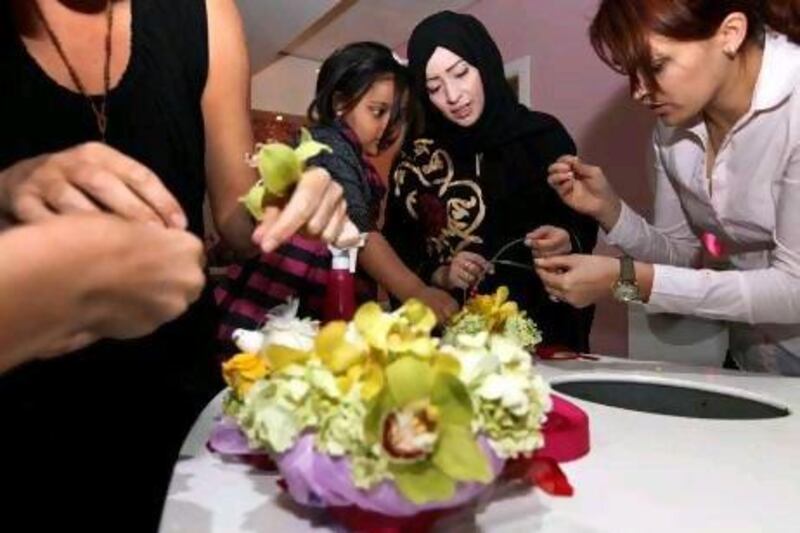DUBAI // Hanan Abdulla Mousa, an Emirati mother of four, learnt on Mother's Day how important it was to spend time with people of different nationalities and draw from their experiences.
Yesterday was the first time Mrs Mousa, 33, had spent time alone with her eldest daughter Sara, 5, outside of the family home.
And she found a new way to bond with Sara during a day-long interaction programme between mothers of different nationalities and their daughters.
"I have realised that it is not dangerous to let your baby meet people from other nationalities," Mrs Mousa said after meeting mothers from the US, Bangladesh, Serbia and Montenegro, who have settled in the Emirates. "Maybe it's better for them, they will have a more open mind.
"I am always with my family. It's the first time for me to be with Sara outside of the home. It's helped me get closer to her."
During the programme organised by the non-profit organisation In Dubai We Trust, the international mothers and their daughters learnt from observing each other's different parenting styles.
Mrs Mousa's friendly, ever-smiling daughter posed for pictures with other mothers, chatted and danced with their daughters, and participated in a flower-making workshop.
Slobodanka Rankovic, a Serbian mother and nursery-school teacher, called for more such interaction.
"I wish my daughter was clever enough never to think about differences between people but be open-hearted," Mrs Rankovic said of her daughter Iva, 4.
"This is a multi-nationality country, so I'm proud she is growing up here. My heart is full here because you can meet so many people."
All of the mothers wished for more time with their children, more maternity leave than the current 45 days, employment opportunities for young adults with disabilities and more support from families for girls.
"I would love to see families get behind the dreams of girls like they do for boys," said Dedra Stevenson, a writer and Alabama native who is married to an Emirati, with whom she has four children.
"The government support is already there for girls, now families must allow girls to shine."
Jelena Geha, a mother from Montenegro who is also a writer, wished for her daughters' health and contentment.
"I wish that they find and make their own happiness," Mrs Geha said.
Urmilla Rupasinghe, from Bangladesh, preferred to give girls the space to make their own decisions.
"We want to protect them but we should let them make mistakes; learn from it so they grow up confident and mature women," said Mrs Rupasinghe, a former human resources manager.
And Mrs Rupasinghe's daughter Aanya, 10, had one desire for her mother: that "she would never get old and die and would always be my mum".







